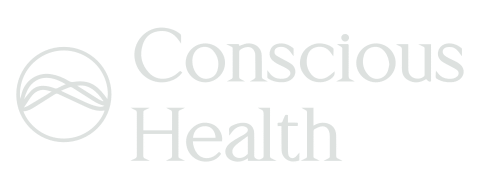
Childhood Depression Treatment
At Conscious Kids, we understand the profound impact depression can have on a child’s emotional well-being, social life, and academic performance. Our comprehensive approach utilizes neurofeedback therapy as our primary treatment modality for childhood depression, helping children and teenagers safely overcome these challenges without relying on medication or invasive procedures. Additionally, our innovative PEAK’t (Precision Enhanced Activation Kinetics) program using Electromagnetic Brain Pulsing (EMBP) serves as a powerful complementary treatment when depression presents alongside other primary conditions.
Table of Contents
What Is Childhood Depression?
Childhood depression is a clinical condition characterized by ongoing sadness or a lack of interest in once-enjoyable tasks. While occasional sadness is normal, depression involves an intense emotional state that persists for weeks or months, potentially hindering a child’s growth and well-being.

Get Started with Conscious Kids
If you suspect your child or teen is experiencing depression, Conscious Kids is here to help. Our PEAK (EMBP) program provides a proactive, compassionate path toward emotional well-being—offering hope and healing for your family. Contact us today to learn more about childhood depression treatment with PEAK and to schedule a consultation.
Child and Teenage Depression Treatment
At Conscious Kids, we offer evidence-based, non-invasive approaches to addressing depression in children and teens:
Neurofeedback serves as our cornerstone treatment for childhood depression:
- Brain Training: Uses real-time monitoring of brain activity to help children learn to regulate their emotional responses
- Evidence-Based: Clinically proven effective for treating depression in young people
- Self-Regulation Skills: Teaches children lasting skills for emotional management
- Non-Invasive: Completely safe with no medication required
- Personalized Protocols: Tailored treatment plans for each child or teen, ages 5–17
Complementary Treatment: PEAK’t (Precision Enhanced Activation Kinetics)
When depression presents as a secondary condition alongside primary diagnoses such as Autism Spectrum Disorder or Functional Neurological Disorder, our PEAK’t therapy offers additional support:
- Targeted Brain Activation: Uses carefully calibrated electromagnetic pulses to support mood regulation
- Safe & Comfortable: No needles, sedation, or invasive procedures required
- Minimal Side Effects: A gentle complement to our primary neurofeedback approach
- Secondary Support: Designed specifically to address depression when it co-occurs with other primary conditions
By focusing on neurofeedback as our primary intervention and utilizing EMBP protocols when appropriate for secondary presentations, we support healthier brain function and foster emotional resilience.
Understanding Depression in Children
Depression in children often differs from adult depression, presenting as persistent irritability, changes in sleep or appetite, and withdrawal from favorite activities. Recognizing these early signs can make a critical difference in a child’s ability to cope and recover.
Overcoming Treatment-Resistant Depression
Our Comprehensive Approach:
Primary Depression Treatment
For children whose primary concern is depression, we utilize neurofeedback therapy as our main treatment modality. This approach directly targets the brain patterns associated with depressive symptoms, helping children develop better emotional regulation skills.
Secondary Depression Support
When depression occurs alongside primary conditions like Autism Spectrum Disorder or Functional Neurological Disorder, our PEAK’t (EMBP) program provides valuable supplementary support, working in harmony with treatments for the primary condition.
What Are the Signs of Childhood Depression?
Irritability or Anger: Frequent outbursts or mood swings.
Social Withdrawal: Avoiding friends, family gatherings, or activities.
Fatigue or Low Energy: Constant tiredness or lack of motivation.
Academic Decline: Sudden drop in grades or school engagement.
Change in Appetite or Sleep Patterns: Eating or sleeping too little or too much.
What Are the Symptoms of Childhood Depression?
Persistent Sadness: Feeling sad, empty, or tearful most days.
Feelings of Worthlessness: Low self-esteem and negative self-talk.
Difficulty Concentrating: Trouble focusing on homework or daily tasks.
Physical Complaints: Headaches or stomachaches with no known cause.
Thoughts of Death or Self-Harm: Expressing hopelessness or suicidal ideation.
What Causes Childhood Depression?
Genetics: Family history of depression or mood disorders.
Environmental Stress: Bullying, academic pressure, or major life changes.
Neurochemical Imbalances: Disruptions in brain chemistry affecting mood regulation.
Chronic Illness: Persistent health challenges that strain mental well-being.
Traumatic Events: Loss of a loved one, divorce, or witnessing violence.
Learn More
Concierge Service
A better you
Begin
Your
Journey.
Day-to-day encounters and social pressures can sometimes take a toll on anyone’s mental health. Our team at Conscious Health & Wellness Center recognizes the significance of offering specialized care for those facing challenges to their mental well-being.
Request a confidential call back by filling out this form.
Request a Confidential Callback
While you’re waiting for one of our team members to reach out to you, take a look through our website and familiarize yourself with Conscious Health, our mental health services and what we treat here in Los Angeles, California.


